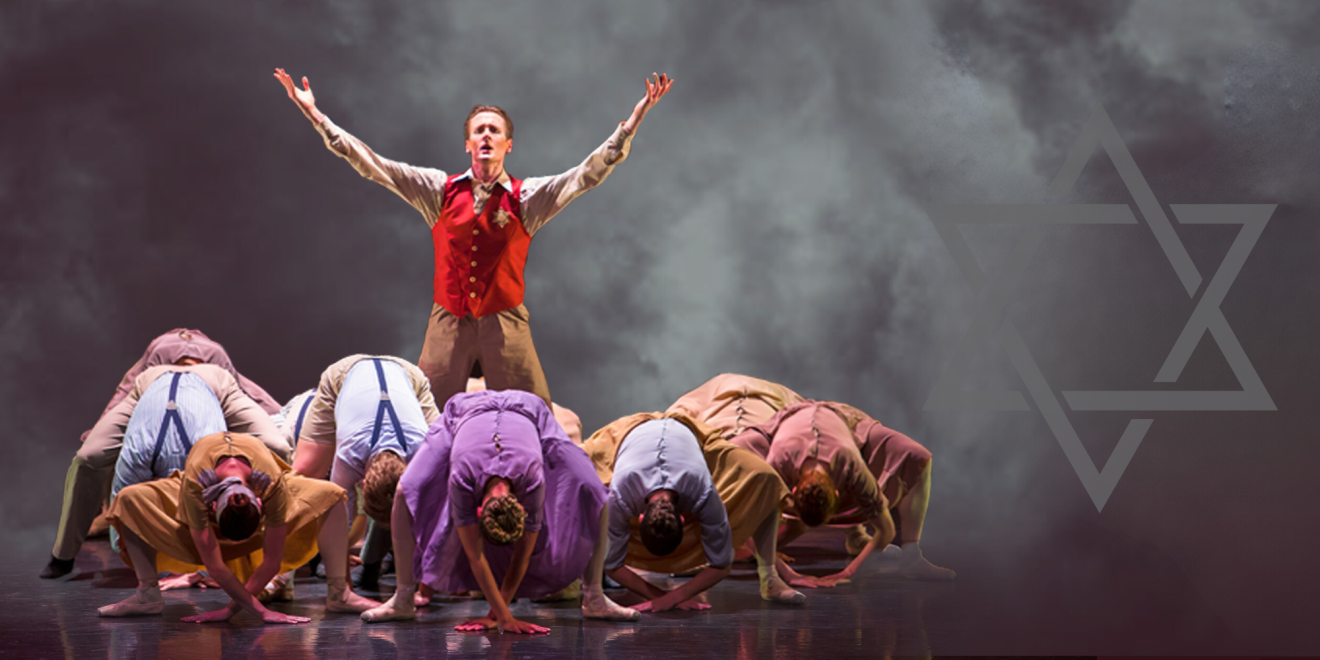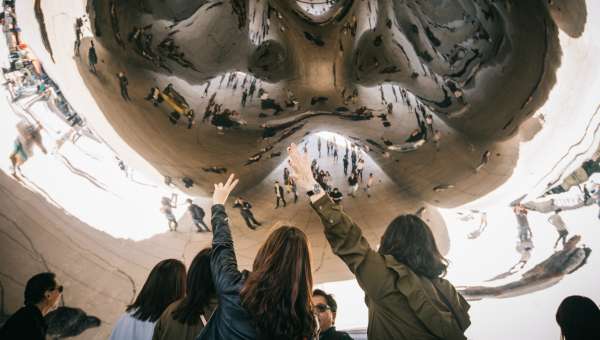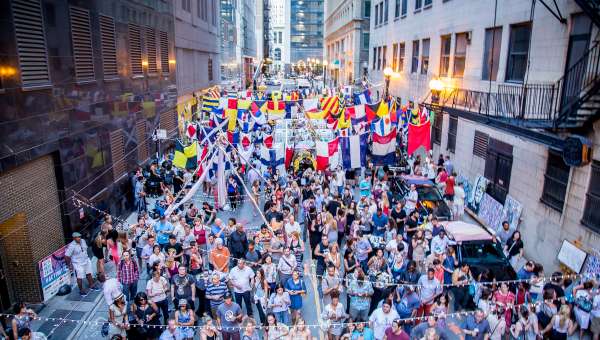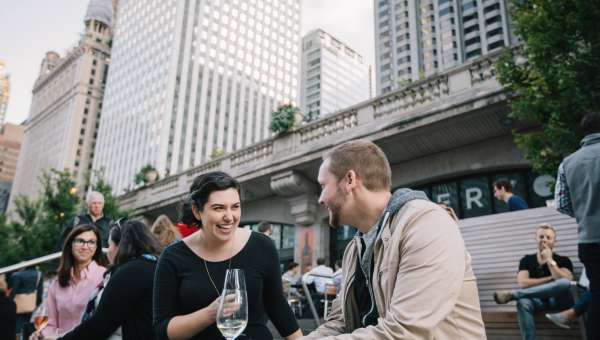Posted 2 years ago in Trending, ballet, Arts & Culture
5 MIN READ – Step into the transformative world of Butterfly, where the harmony of music, dance, and visual art create an unforgettable and deeply moving experience. The following is an interview with Ellington Nichols, a relative of Holocaust survivors and who performs the role of Helga Weiss in Ballet 5:8’s Butterfly. See Ballet 5:8's Butterfly on February 11 at the Logan Center for the Arts at the University of Chicago.
Helga Weiss’s story is one of resilience and hope amidst unimaginable darkness. How do you emotionally prepare for such a challenging role, and how does your family history contribute to the depth of your performance?
Preparing for such an emotional and true story can be daunting, but I’ve always liked to start my character development with research. I’m currently reading through Helga Weiss’s diary which gives a deep glimpse into her mind and thoughts throughout the Holocaust, specifically at the Terezin ghetto where she had more access to writing materials. Getting to dive deeper into my family history brings a very real sense of struggle and triumph to my creative process. It’s hard to read and listen to their stories but simultaneously, it gives me a deeper sense of determination to highlight stories like Helga Weiss and not allow their names to be forgotten.
The ballet “Butterfly” explores the power of art as a means of expression during the Holocaust. As a ballerina, how do you believe the art of dance contributes to telling this historical narrative, and what unique challenges does it pose compared to other roles you’ve performed?
There is an avenue of emotions that only dance can expose. I personally feel that the expressions of ballet can touch people in ways we may not understand. When you read stories you comprehend, when you hear stories you listen, but when you see this story of struggle, hope, determination, and resilience, you will feel. Feelings that you may not understand but will propel you to deeper meaningful conversations and discussions that will spark joy and hope in your life. That is what dance does. It has the ability to touch on extremely difficult topics with grace and beauty amidst the suffering.

Being a descendant of Holocaust survivors, do you find any specific moments in the ballet particularly poignant or challenging to perform, and how do you personally connect with the themes of resilience and hope portrayed in “Butterfly”?
Two moments come to mind. First, when we see Helga first enter Terezin and she is separated from her parents. This moment is small but so important. I can barely imagine what that would actually feel like in real life. Thousands of families were torn apart never to be the same. I’m eager to grapple with such challenging moments and portray them on stage.
Second, about midway through the ballet we dance a section called Gorecke. It’s winter and we are starving. The music is beautifully tragic and the movement portrays the defeat and exhaustion the Jews were experiencing. This moment is particularly challenging because I am directly faced with the tragedy that so many suffered through, including my ancestors. We almost lose hope and that is what really scares me. The resilience that my great Grandma Helen, Helga Weiss, and so many others portrayed throughout such difficult moments gives me courage and pushes me to tell these stories and not let them be forgotten.
As the ballet concludes with the Defiant Requiem, a powerful moment honoring those who resisted oppression, how do you channel the emotions of defiance and courage in your final performance, and what message do you hope the audience takes away from this unforgettable experience?
During the Defiant Requiem the emotions of passion, outrage, and hope swell throughout my thoughts. Both the music and the choreography create an intense sense of yearning to be free and for understanding. I hope the audience takes away how potent hope can be and how each and every human life should be valued with the utmost importance. (edited)
Purchase tickets for Ballet 5:8's Butterfly on February 11 at the Logan Center for the Arts at the University of Chicago here.




